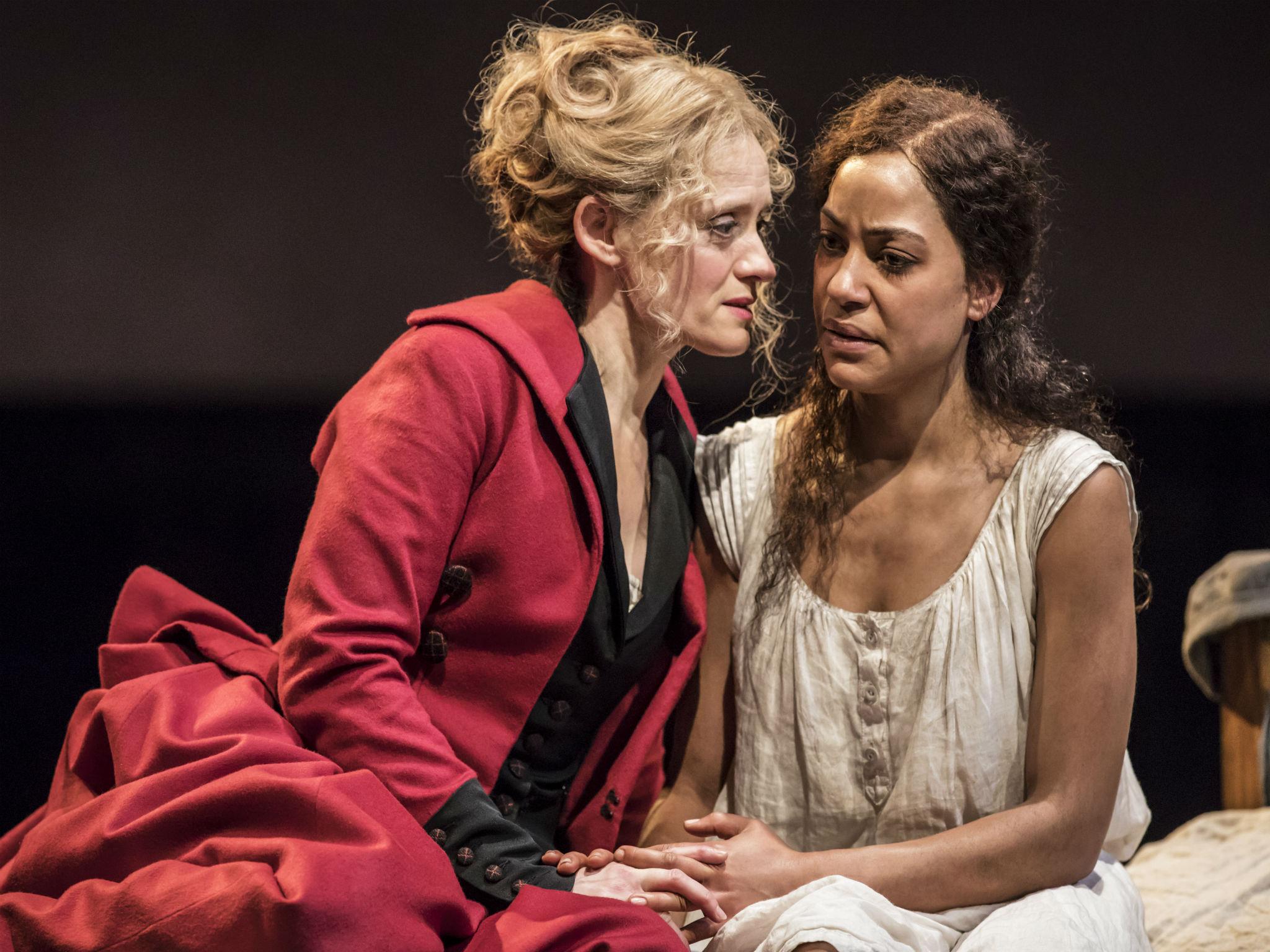Common, Olivier, National Theatre, London, review: You emerge reckoning that this requires a miracle rather than surgery
DC Moore is a playwright of admirable wit, but this work – set in early industrial England and starring Anne-Marie Duff – lacks focus

“If I were I man, you'd call me rogue. Let us do with whore, liar, thief, c**t,” declares Mary (Anne-Marie Duff) in one of her several knowing, woman-of-the-world asides to the audience in DC Moore's new play.
Set in early industrial England, it tells the story of Mary, who returns to the rural village of her birth after years of living on her wits as a con-artist in respectable London. Part fake fortune teller, part genuine seer (of shifting social status), she arrives back to discover that there's trouble brewing between the peasants/tenant farmers and the local lord who is viciously intent on enclosing the common land and on bringing in Irish labourers if they do not agree to his schemes.
Mary knows what it is like to be ousted from this community. She'd been adopted as a child by a woman who went on to have two children of her own. Her “sister”, Laura (Cush Jumbo), became her heart's desire; her “brother” King (John Dagleish), himself infatuated with Laura, her splenetic rival. She had to drag herself out a river where he had left her for dead, and flee to London.
Mary has returned to persuade the other woman to run away with her maybe as far as America to forge a new life; but Laura, though tempted, is too rooted to the land and inextricably involved in the struggle against the Enclosures. It does not help Mary's composure about these developments that King has become a leading protester.
It's not hard to see why Headlong and the National Theatre, the co-producers of the show, were intrigued by this as a proposition. It could have made for a particularly telling investigation of the age-old problem of how you try to reconcile individual desires and the common good. But while I admire DC Moore's wit and incisiveness in the smaller-scale plays of his that I have seen, this attempt at a darkly funny epic does not demonstrate the gifts for keeping control of focus or for the creation of mutually illuminating narrative strands that are needed.
Jeremy Herrin's production fills the Olivier with some beautifully atmospheric staging – all the scenes, indoors and out, are played on a broad disc of thin, exhausted earth and engulfed by great white sky mottled with brown (the set is by Richard Hudson; the lighting design by Paule Constable).
The melancholy and menace powerfully loom in the sequences of scything and the sinister Wicker Man-like episodes, underscored by heavy percussion. This consistency is in sad contrast to a script that is all over the place. In theory, the blood and guts and incest are connected to the concerns about common land. But it feels more like the meanderings of melodrama and the stylised language is pitted with gratuitous profanities.
The excellent Anne-Marie Duff puts some real spark into Mary's attractive spitefulness. But though, during previews, the evening has managed to lose 30 minutes of the three hours running time announced in the programme, you still emerge reckoning that this requires a miracle rather than surgery.
Subscribe to Independent Premium to bookmark this article
Want to bookmark your favourite articles and stories to read or reference later? Start your Independent Premium subscription today.

Join our commenting forum
Join thought-provoking conversations, follow other Independent readers and see their replies